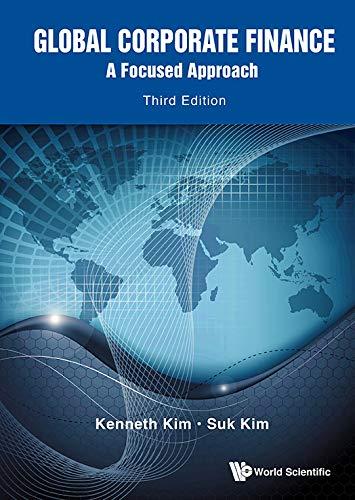Question
Use the data below for problems 6 to 10. Year Proj Y Proj Z 0 ($210,000) ($210,000) 1 200,000 95,000 2 95,000 78,000 3 73,000
Use the data below for problems 6 to 10.
| Year | Proj Y | Proj Z |
| 0 | ($210,000) | ($210,000) |
| 1 | 200,000 | 95,000 |
| 2 | 95,000 | 78,000 |
| 3 | 73,000 | |
| 4 | 87,500 |
The projects provide a necessary service, so whichever one is selected is expected to be repeated into the foreseeable future. Both projects have an 11% cost of capital.
6. What is each projects initial NPV without replication?
7. What is each projects equivalent annual annuity?
8. Now apply the replacement chain approach to determine the shorter projects extended NPV. Which project should be chosen?
9. Now assume that the cost to replicate Project Y in 2 years will increase to $240,000 because of inflationary pressures. How should the analysis be handled now, and which project should be chosen?
10. You are also considering another project which has a physical life of 3 years; that is, the machinery will be totally worn out after 3 years. However, if the project were terminated prior to the end of 3 years, the machinery would have a positive salvage value. Here are the projects estimated cash flows:
| Yr | CF | Salvage |
|---|---|---|
| 0 | ($89,000) | $89,000 |
| 1 | 31,200 | 48,000 |
| 2 | 45,400 | 39,000 |
| 3 | 52,750 | 0 |
Using the 13% cost of capital, what is the projects NPV if it is operated for the full 3 years? Would the NPV change if the company planned to terminate the project at the end of Year 2? At the end of Year 1? What is the projects optimal (economic) life?
Step by Step Solution
There are 3 Steps involved in it
Step: 1

Get Instant Access to Expert-Tailored Solutions
See step-by-step solutions with expert insights and AI powered tools for academic success
Step: 2

Step: 3

Ace Your Homework with AI
Get the answers you need in no time with our AI-driven, step-by-step assistance
Get Started


